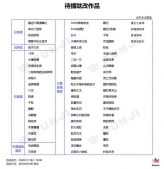Java中List.of()和Arrays.asList()的区别及原因
动手写一下,让自己更有印象
1.Arrays.asList()可以插入null
而List.of()不可以
|
1
2
3
4
5
6
7
8
9
10
11
12
13
14
|
import java.util.List;import java.util.Arrays;class Solution { public static void main(String[] args) { List<Integer> ls1 = Arrays.asList(1, 2, null); //List<Integer> ls2 = List.of(1,2,null); System.out.println(ls1); //System.out.println(ls2); }} /*结果[1, 2, null]*/ |
|
1
2
3
4
5
6
7
8
9
10
11
12
13
14
|
import java.util.List;import java.util.Arrays;class Solution { public static void main(String[] args) { //List<Integer> ls1 = Arrays.asList(1, 2, null); List<Integer> ls2 = List.of(1,2,null); //System.out.println(ls1); System.out.println(ls2); }} /*结果Exception in thread "main" java.lang.NullPointerException.....*/ |
2.用List.of的List自然是不包含null
而用Arrays.asList的List包含null。上面结果也可得知。
|
1
2
3
4
5
6
7
8
9
10
11
12
13
14
|
import java.util.List;import java.util.Arrays;class Solution { public static void main(String[] args) { List<Integer> ls1 = Arrays.asList(1, 2, null); //List<Integer> ls2 = List.of(1,2); System.out.println(ls1.contains(null)); //System.out.println(ls2.contains(null)); }} /*结果true*/ |
|
1
2
3
4
5
6
7
8
9
10
11
12
13
14
|
import java.util.List;import java.util.Arrays;class Solution { public static void main(String[] args) { //List<Integer> ls1 = Arrays.asList(1, 2, null); List<Integer> ls2 = List.of(1,2); //System.out.println(ls1.contains(null)); System.out.println(ls2.contains(null)); }} /*结果Exception in thread "main" java.lang.NullPointerException.....*/ |
3.List.of生成的List不能修改
Arrays.asList生成的List能修改。
|
1
2
3
4
5
6
7
8
9
10
11
12
13
14
15
16
|
import java.util.List;import java.util.Arrays;class Solution { public static void main(String[] args) { List<Integer> ls1 = Arrays.asList(1, 2, null); //List<Integer> ls2 = List.of(1,2); ls1.set(0,5); //ls2.set(0,5); System.out.println(ls1); //System.out.println(ls2); }} /*结果[5, 2, null]*/ |
|
1
2
3
4
5
6
7
8
9
10
11
12
13
14
15
16
|
import java.util.List;import java.util.Arrays;class Solution { public static void main(String[] args) { //List<Integer> ls1 = Arrays.asList(1, 2, null); List<Integer> ls2 = List.of(1,2); //ls1.set(0,5); ls2.set(0,5); //System.out.println(ls1); System.out.println(ls2); }} /*结果Exception in thread "main" java.lang.UnsupportedOperationExceptio.....*/ |
4.关于数组修改对List的影响
数组修改对Arrays.asList生成的List有影响,对List.of 生成的List无影响
|
1
2
3
4
5
6
7
8
9
10
11
12
13
14
15
16
17
18
19
20
21
|
import java.util.List;import java.util.Arrays;class Solution { public static void main(String[] args) { Integer[] a = new Integer[]{1,2,3,4}; // 不能用int[],会导致转型错误,错误: 不兼容的类型: 推论变量 T 具有不兼容的上限 List<Integer> ls1 = Arrays.asList(a); //List<Integer> ls2 = List.of(a); System.out.println(ls1); //System.out.println(ls2); a[0] = 5; //ls2.set(0,5); System.out.println(ls1); //System.out.println(ls2); }} /*结果[1, 2, 3, 4][5, 2, 3, 4]*/ |
|
1
2
3
4
5
6
7
8
9
10
11
12
13
14
15
16
17
18
19
20
|
import java.util.List;import java.util.Arrays;class Solution { public static void main(String[] args) { Integer[] a = new Integer[]{1,2,3,4}; //List<Integer> ls1 = Arrays.asList(a); List<Integer> ls2 = List.of(a); //System.out.println(ls1); System.out.println(ls2); a[0] = 5; //ls2.set(0,5); //System.out.println(ls1); System.out.println(ls2); }} /*结果[1, 2, 3, 4][1, 2, 3, 4]*/ |
原因
关于List.of为什么不能插入null,和修改了原数组不影响到List.of生成的List。先看看List.of有关的源码
|
1
2
3
4
5
6
7
8
9
10
11
12
13
14
15
16
17
18
19
20
21
22
23
24
25
26
27
28
29
30
31
32
33
34
35
36
|
@SafeVarargs @SuppressWarnings("varargs") static <E> List<E> of(E... elements) { switch (elements.length) { // implicit null check of elements case 0: return ImmutableCollections.emptyList(); case 1: return new ImmutableCollections.List12<>(elements[0]); case 2: return new ImmutableCollections.List12<>(elements[0], elements[1]); default: return new ImmutableCollections.ListN<>(elements); } }//--------------------------------------------------------------------------------------- @Stable private final E[] elements; @SafeVarargs ListN(E... input) { // copy and check manually to avoid TOCTOU @SuppressWarnings("unchecked") E[] tmp = (E[])new Object[input.length]; // implicit nullcheck of input for (int i = 0; i < input.length; i++) { tmp[i] = Objects.requireNonNull(input[i]); } elements = tmp; } //--------------------------------------------------------------------------------------- public static <T> T requireNonNull(T obj) { if (obj == null) throw new NullPointerException(); return obj; } |
可以看到Objects.requireNonNull()。所以不能插入空值。
E[] tmp = (E[])new Object[input.length];表示新建了个新的数组对象,所以修改了原数组,不影响生成的LIst底层的数组。
返回的数组是个final类型的,所以不能修改
再看看Arrays.asList源码
|
1
2
3
4
5
6
7
8
9
10
11
12
13
14
15
16
17
18
19
|
@SafeVarargs @SuppressWarnings("varargs") public static <T> List<T> asList(T... a) { return new ArrayList<>(a); } //---------------------------------------------------------------------------------------- ArrayList(E[] array) { a = Objects.requireNonNull(array); } //---------------------------------------------------------------------------------------- public static <T> T requireNonNull(T obj) { if (obj == null) throw new NullPointerException(); return obj; } |
由源码可知,底层的数组就是传入的数组,所以对原数组的修改会影响到用Arrays.asList方法生成的List。而且Objects.requireNonNull(array)检查的是整个数组是不是null,而非对每个元素进行检查是否为null。所以用Arrays.asList方法可以插入空值。
也没有规定是final的,所以支持修改。
java listof报错处理
List.of()生成不可变数组(字符串也行)
是在jdk1.8以后才出现的,在jdk1.9版本及以后才能运行。
以上为个人经验,希望能给大家一个参考,也希望大家多多支持服务器之家。
原文链接:https://blog.csdn.net/qq_42520962/article/details/109380430





